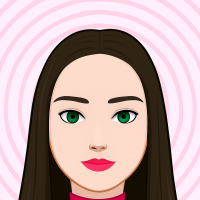International Epilepsy Day - Reflecting on Childhood Experiences with Sara

As part of International Epilepsy Day, this is a conversation with @SaraC_Scope who was diagnosed with epilepsy as a very young child. This interview talks about her childhood experiences, explores the impact of the condition and highlights the positive and supportive role her parents played.
We hope this is a helpful read for families navigating similar challenges!
Please can you share a little about when you were diagnosed with epilepsy and what that experience was like for you and your family?
I had my first seizure at the age of 18 months and was diagnosed with epilepsy at the age of two. It was a scary time for my parents as the seizures were unpredictable and led to lots of hospital stays. I didn’t have one type of seizure.
I experienced a mix of tonic clonic, focal and absence seizures. Mum and Dad couldn’t identify a trigger or pattern to pinpoint when they would happen.
Over time epilepsy became part of our family life. It was there in the background. We had strategies and plans in case a seizure happened, but my parents made sure it didn’t define us. There wasn’t access to epilepsy support like there is today. My parents had paediatrician appointments, and I took anti-epileptic medication, but that was the only support available. Thankfully in 2007 we found the right combination of medication and I’ve been almost seizure free for 18 years.
Who or what has been your biggest source of support throughout your life with epilepsy so far?
Throughout my childhood my parents were my biggest advocates. They supported me through some very difficult times but encouraged me to be as independent as possible. I attended mainstream school and aged 17, started an apprenticeship at the Local Authority. This opportunity increased my confidence, and I built relationships with colleagues. I met my boyfriend Gareth at 18, who is now my husband. He has been a huge support, especially when we were young adults. Witnessing a seizure was scary for him, but he didn’t see it as a problem for our relationship. We’ve been together 30 years.
Once my seizures were controlled with medication, I wanted to support others with epilepsy and contacted the charity, Epilepsy Action Cymru. I became a volunteer at coffee and chat groups and then an accredited volunteer, giving presentations about epilepsy to schools and businesses.
My manager at Epilepsy Action was a great mentor. She could see some untapped potential when I listened and supported people who attended the groups. This mentorship led to me enrolling on a counselling course and I qualified as a counsellor in 2020.
What advice would you give to parents about building a strong support system for their child with epilepsy?
It’s important to find that support network as early as possible. Even if it’s just to gather information and access resources. Connecting with organisations and other families removes some of the fear of managing epilepsy alone. There are some great charities that offer support to children as well. Living with epilepsy can be confusing and scary, so linking up with other children.
What are some things you wish your parents had known or done differently when you were a child with epilepsy?
Epilepsy is hidden disability and when I was young, society didn’t understand the condition. Mum and Dad didn’t have the support to explain the definition of epilepsy and how my seizures presented. If they had received the support that’s available today, I believe my school life would have been easier.
How have you learned to advocate for yourself and your needs related to epilepsy?
I will take medication to control my epilepsy for the rest of my life. Sometimes it’s difficult to get hold of medication when my prescription is due. I’ve had to learn to be confident and assertive when explaining to the surgery, it’s essential I receive my medication on time.
I recognise the need to manage my stress levels. Sometimes life can be stressful, and I’ve had seizures after a difficult period. I’ve learnt to put boundaries in place and spend time doing things I enjoy, like watching television, walking my spaniel and eating chocolate.
Sara is part of the Cerebral Palsy (CP) Network at Scope and is the CP lead for Cardiff so if you or a family member have CP and live in South Wales, please reach out to her for information, support and advice.
Categories
- All Categories
- 15.8K Start here and say hello!
- 7.5K Coffee lounge
- 105 Games den
- 1.8K People power
- 158 Announcements and information
- 25.2K Talk about life
- 6.2K Everyday life
- 508 Current affairs
- 2.5K Families and carers
- 873 Education and skills
- 2K Work
- 579 Money and bills
- 3.7K Housing and independent living
- 1.1K Transport and travel
- 642 Relationships
- 1.6K Mental health and wellbeing
- 2.5K Talk about your impairment
- 878 Rare, invisible, & undiagnosed conditions
- 939 Neurological impairments and pain
- 2.2K Cerebral Palsy Network
- 1.2K Autism and neurodiversity
- 40.8K Talk about your benefits
- 6.1K Employment & Support Allowance (ESA)
- 20.3K PIP, DLA, ADP & AA
- 9.1K Universal Credit (UC)
- 5.3K Benefits and income


